 Chocolate-covered ants are just one of the gourmet products sold by CIBUM S.A.S., a small business benefiting from training provided by the LGBT Global Development Partnership.
CIBUM S.A.S.
Chocolate-covered ants are just one of the gourmet products sold by CIBUM S.A.S., a small business benefiting from training provided by the LGBT Global Development Partnership.
CIBUM S.A.S.
 Chocolate-covered ants are just one of the gourmet products sold by CIBUM S.A.S., a small business benefiting from training provided by the LGBT Global Development Partnership.
CIBUM S.A.S.
Chocolate-covered ants are just one of the gourmet products sold by CIBUM S.A.S., a small business benefiting from training provided by the LGBT Global Development Partnership.
CIBUM S.A.S.
Jose Gabriel Lopez Ortiz and Fabio Americo Rugeles Oviedo, Colombian entrepreneurs who sell chocolate-covered ants, are building their business thanks to a unique USAID partnership that is breaking down cultural stereotypes against lesbian, gay, bisexual and transgender (LGBT) individuals and helping them overcome barriers to economic success.
Although Ortiz and Oviedo sell an unusual food item, as business owners, the real barriers they have had to overcome are the violence, economic hardship, stigma and political marginalization that impact the lives of millions of LGBT individuals around the world. Lack of employment opportunities; discrimination in access to health care, housing and education; and infringement on the right to assemble are part of the day-to-day realities of many LGBT individuals.
“Being gay, I have experienced certain kinds of discrimination by people who do not know me …. When I was younger, it was very hard to accept that I am gay,” said Oviedo.
And while Oviedo is now proud of who he is and his success as a businessman, he sees a need for continued change.
A recent report published by the Williams Institute verifies what USAID has long known—that economic prosperity and inclusive development go hand-in-hand. The study explores how LGBT individuals are often kept from reaching their full economic potential—through bullying that hinders advancement in education, workplace discrimination and the formal criminalization of homosexuality. The report concludes that such discrimination against LGBT individuals has large-scale economic implications: Every legal right a country provides LGBT individuals is correlated to a $320 increase in its per capita gross domestic product.
“By linking discrimination against LGBT individuals to a country’s economic well-being, the issue of bigotry is not just felt and understood by those who are LGBT, but by anyone who cares about that country’s economic growth. When LGBT individuals fully participate in the economy, the benefits extend beyond the LGBT community,” said Claire Lucas, senior adviser for public-private partnerships at USAID.
USAID’s LGBT Global Development Partnership—part of the Agency’s LGBT equality programming—is leveraging USAID’s development expertise alongside the resources and business networks of established LGBT advocacy groups, emerging local community organizations and corporate partners such as Wells Fargo and Miller Coors.
These partners are training LGBT entrepreneurs; strengthening LGBT leadership and participation in democratic processes; supporting local LGBT organizations; and conducting research to help decisionmakers understand the implications of LGBT discrimination so they can take action to advance human rights and inclusive development.
“We are at a critical moment in time for LGBT equality. In some countries, LGBT rights are gaining ground like never before but, in other countries, LGBT individuals are facing increasingly dire circumstances,” said Lucas, who manages the partnership for USAID. She points out that 83 countries and territories currently criminalize LGBT behavior, eight of which may impose the death penalty for same-sex relations. “By working with entrepreneurs, government officials, local organizations and researchers, the partnership is seeking to support LGBT individuals to be powerful forces for change in their own communities,” she said.
After just two years, USAID’s work is showing results. At workshops like the one attended by Ortiz and Oviedo, LGBT entrepreneurs develop business plans and share ideas. Coordinated by the National Gay and Lesbian Chamber of Commerce in conjunction with country-level affiliates such as the Colombia LGBT Chamber of Commerce, these entrepreneurs are changing the way LGBT companies do business by formalizing activities and increasing revenues.
Ortiz and Oviedo’s catering and specialty foods company, CIBUM S.A.S., purchases ingredients from local smallholder farmers who use environmentally sustainable agricultural practices. For these farmers, the most pressing concern is getting the best price for their raw product—not the sexual identity of their consumer.
“Some of our suppliers know that members of the company belong to the LGBT community,” Ortiz said. “There has not been any difficulty in working with them. They see that the company is reputable and represents a source of income for themselves and their families, so the sexualities of the owners and customers are not relevant.”
The LGBT Global Development Partnership is also tackling broader issues to help tear down barriers preventing many LGBT individuals from reaching their economic potential and full political inclusion.
One example: USAID is working with the Astraea Lesbian Foundation for Justice to make small grants to support organizations advancing LGBT rights. Among these are organizations such as Transgender and Intersex Africa, which focuses on improving access to health care for black transgender people in underserved communities in South Africa, and Santamaría Fundación, which works to prevent violence against transgender women in Colombia.
The partnership is also preparing LGBT individuals to participate more fully in democratic political processes. Communications labs, conducted in partnership with Astraea, and leadership trainings, conducted in partnership with the Gay and Lesbian Victory Institute and local organizations like Caribe Afirmativo, Colombia Diversa and PROMSEX, are helping LGBT individuals advocate for more inclusive democracies. Initiatives like these are credited with helping elect Angelica Lozano to Colombia’s House of Representatives in Bogotá, the country’s first national-level, openly LGBT political official, as well as Luisa Revilla Urcia, a local council member in Trujillo, Peru, and that country’s first openly transgender elected official.
“The election of LGBT officials … allows people to openly work towards the recognition of rights and equality … and contributes to the demolishing of negative public perception due to the lack of interaction of LGBT people,” said Tatiana Piñeros Laverde, a graduate of the USAID program’s political training who now serves as the director of Bogotá’s District Institute of Tourism.
“The fear of the unknown always generates myths,” says Oviedo. “I educate those who have a negative perception of the LGBT community by showing that we are ordinary people, and I eliminate those unfounded prejudices.”
Says Ortiz: “I think my business can help people who are not part of the LGBT community see that this is an economically empowered sector, promoting positive changes in the way they relate to this community. Although LGBT human rights in Colombia is still difficult, greater spaces of inclusion are continuously being generated in which a company like CIBUM can be an example.”







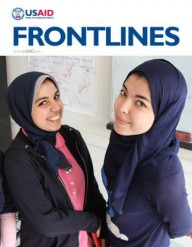

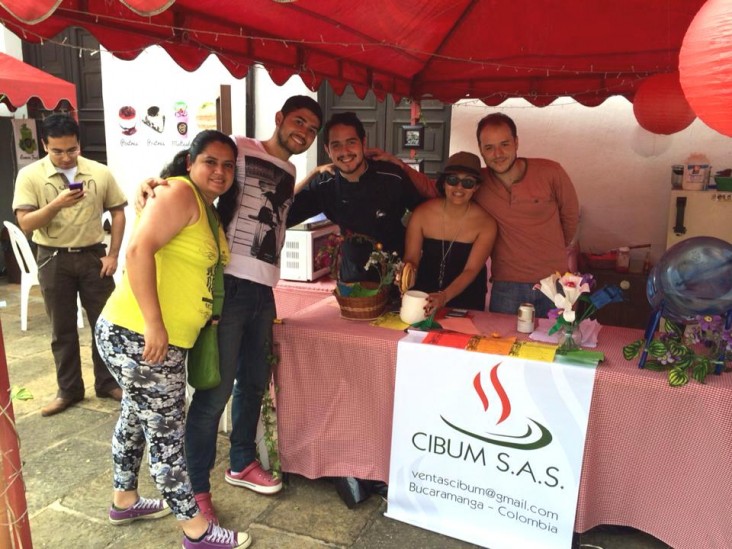
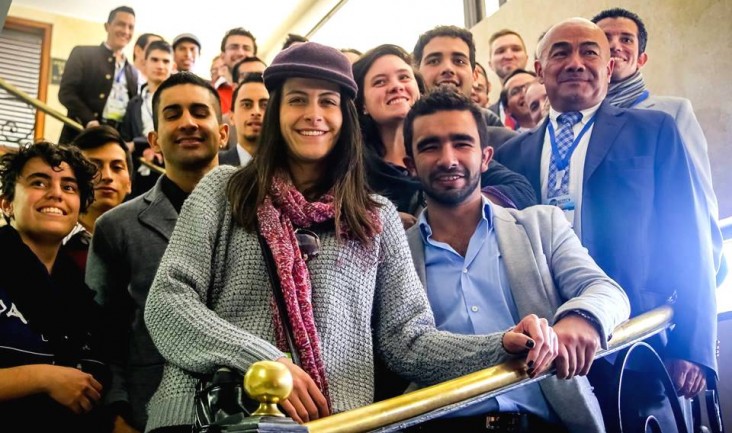
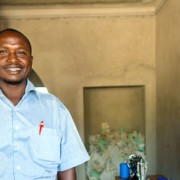
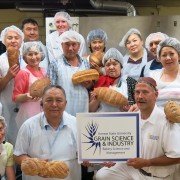
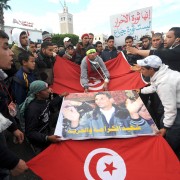
Comment
Make a general inquiry or suggest an improvement.